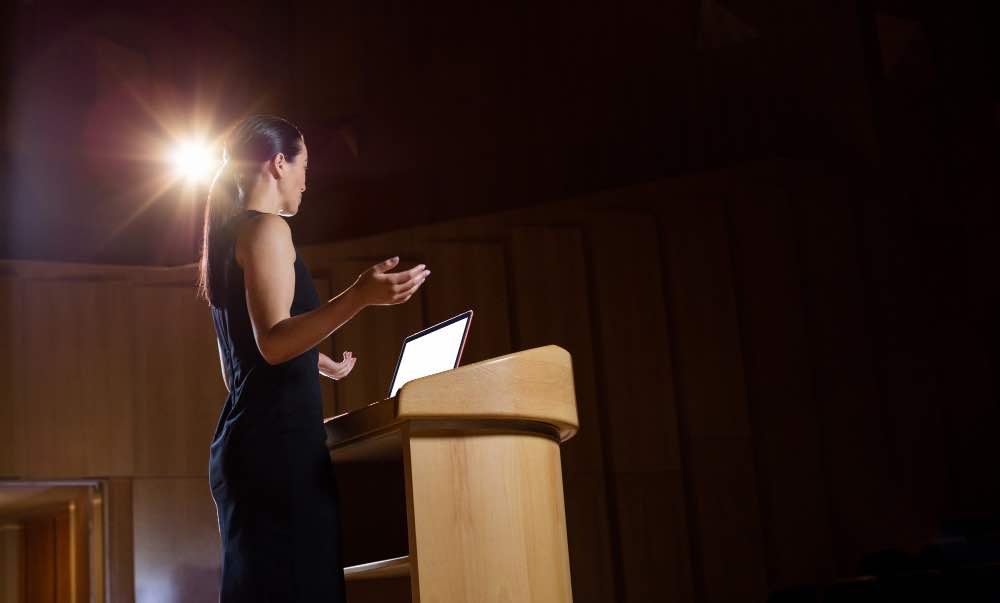It’s true – being overly-emotional can strain our relationships. But on the other hand, is emotion really an obstacle to effective communication?
It’s still quite easy to encounter this idea: let’s leave emotions out of this work conversation so that we stay ‘professional’. This can feel like the easier way out, especially if we don’t know how to handle the emotions of other people or ourselves.
I can understand why some in our midst might default to this strategy. But in my years of coaching, I cannot deny that emotions play a big part in effective communication. When we learn how to work with emotion, our communication skills can become more effective.
Effective Communication For Leading Change
For example, many of my clients find themselves in positions where they called to lead some sort of change. They range from formal projects involving large teams, down to interpersonal issues between two persons.

If you find yourself leading a change, know that there is always going to be resistance to change.
Isn’t this true – when people tell us we are wrong, the tendency is to become even more entrenched in our point of view and defend it.
The way to work with resistance is to first acknowledge it. This often done through empathy. Showing that we can relate, that we can feel what they feel, without suggesting they are wrong, or trying to change them.
When you empathise, you create common ground.
When the other party feels adequately understood, they are better able to trust us more when we bring up the matter change again. It doesn’t mean that they will jump to our side, but the animosity will likely be reduced. You have connected as human beings, and are no longer just ‘the other’. If needed, you will have more space to negotiate, with care and respect for each other.
⚠️
If you can help someone feel seen and heard, are you not practicing effective communication?
If you create more space to negotiate, aren’t you being an effective communicator?
How Emotion & Effective Communication Is A Part of Persuasion

When it comes down to the actual persuasion or convincing, knowing how to work with emotions can also be a critical component of effective communication.
Recall a great conversation or a TED talk which convinced or inspired you – isn’t that experience emotional at the core?
Think of it this way: when you’re the speaker, you’re helping your listener to empathise with you. You do this by sharing your emotions, through your words and stories.
Now, think of that conversation or TED talk again – can you spot where or how you were picking up emotions?
Maybe you sensed urgency or enthusiasm in the voice?
Maybe the movements or posture captured your attention?
Or was it the story that gripped you from start till end?
Maybe it wasn’t one particular aspect, but the overall energy of the speaker.
⚠️ Notice – even as the content was logical, what moved you was emotional. You felt empathy – or maybe even solidarity – for the speaker. Whether it was by the speaker’s intention, or by your own interpretation, you resonated emotionally with the speaker’s agenda. This makes you more able to respond to the speaker’s call for change.
Change Is Easier Through Authentic Exchange

This is why emotions are important for effective communication, especially if you are leading some form of change, at your workplace or in a personal relationship. The ability to exercise empathy both ways can facilitate the change, and make it either happen more quickly, or with less pain.
Change is easier through authentic exchange. Empathy greases the friction of change.
So, emotions could be an obstacle to effective communication – when they are ignored, invalidated and suppressed. At best, you’re limiting your communication skills by not harnessing emotions. At worst, your interactions might become unclear, unpleasant, or even hostile.
Learn Emotional Skills for Effective Communication
Expressing and sitting with emotions is not a skill that is common to all. But it can be learnt; it can be practiced. Among the clients who come to me for coaching to improve communication skills, about 40% – 50% discover the core of their work to be in the domain of emotions and empathy.
Like them, you might are already be experts in your vocation. You have no speech impediments. The way to more effective communication is to learn how to integrate emotions into the way you communicate and interact with others.
How I can help you improve your communication by harnessing your emotions
I can help you improve your communication and make better use of your emotions. This is familiar territory I’ve visited with clients on over the years, as a full-time communication coach, specializing in communication and confidence.
Every coaching engagement is unique, because each client has different needs, weaknesses and strengths. However, there are processes that unfold every single time:
- Through open exploration and in-depth reflection, we will uncover your blindspots.
- Once you can see the cause or nature of your issue, you might also be able to see how you can do things differently so you get different result.
- I can also guide you to try new ways of saying or doing things, that are effective and feel authentic for you.
- Together, we will co-create practices that you can adopt, to assimilate what you learn into your regular way of being.
- I will provide you with honest feedback which you can use to calibrate and fine-tune your new skills.
What coaching is
Coaching is a form of super-customised learning, focused solely on your needs. It is one of the most dignified forms of professional help, because you choose the topic, direction and depth of what you wish to work on.
In fact, my clients are NOT ‘broken’ in any way. They are capable, creative and self-initiated individuals who want to live out their full potential. Many of them are high-performers at their workplace.
They just want support to help them hit their objectives more quickly and with less pain.
If taking ownership of your growth appeals to you, coaching is might be suitable for you.
WhatsApp me now, to find out how you and I can work together on your communication and confidence.
Or, if you know what you want, and would like to move things along more quickly, you can pre-book a ‘chemistry’ coaching session with me → here. I will respond to you to confirm the session.
"A good coach can change the game. A great coach can change a life."
~ John R. Wooden
















